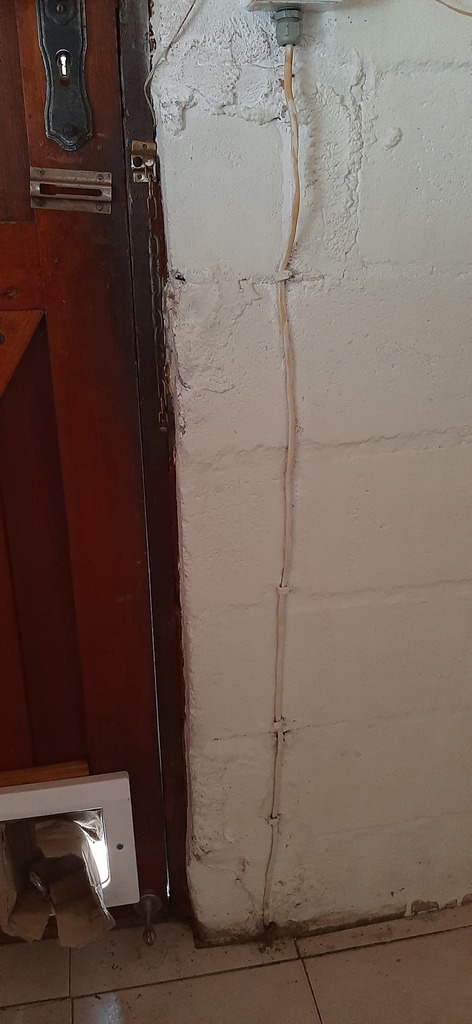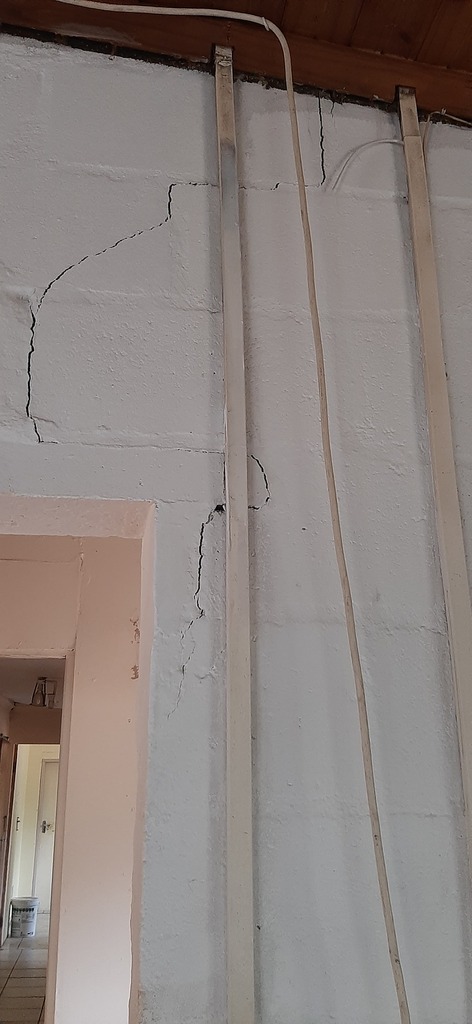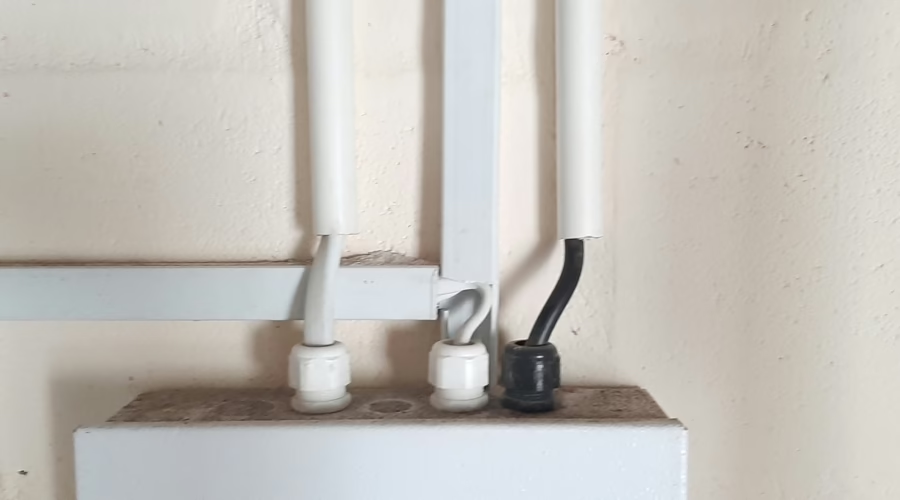Shockingly Unsafe – The Danger of Non-Compliant Wiring in Residential Properties
Introduction
Electrical safety is a cornerstone of any habitable property. Yet, in some cases, tenants are subjected to hazardous conditions due to non-compliant wiring and unauthorized electrical installations. This article highlights the discovery of unsafe electrical wiring in a rental property, exploring the risks it poses, the legal obligations of landlords, and the responsibilities of municipalities to enforce compliance.
The Issue: Non-Compliant and Unauthorized Wiring
- Hazardous Wiring Practices
- Wires without Sleeving: Unprotected wiring passing through walls, both internally and externally, exposes occupants to serious electrical hazards.
- Distribution Board Deficiencies: Wiring leading to the distribution board is unsleeved, indicating non-compliance with South African electrical standards.
- Unauthorized Installations
- A pool pump, allegedly installed without proper authority or a Certificate of Compliance (CoC), further highlights the risks.
- The absence of approved building plans for the pool raises additional concerns about the legality of the structure and associated wiring.
The Risks
- Fire Hazards: Exposed or poorly installed wiring is a common cause of electrical fires.
- Electrocution Risks: Unprotected wires increase the likelihood of accidental contact and severe injury.
- Non-Compliance Consequences: Unauthorized electrical installations can void insurance claims in the event of damage or injury.
Legal Framework for Electrical Safety
- Occupational Health and Safety Act (1993)
- Requires landlords to ensure that electrical installations are safe and comply with national safety standards.
- Electrical Installation Regulations (2009)
- Mandates that all electrical work be carried out by licensed electricians and accompanied by a CoC.
- Non-compliance is a criminal offense punishable by fines or imprisonment.
- National Building Regulations and Building Standards Act (1977)
- Electrical installations must comply with the South African National Standards (SANS) for wiring and electrical safety.
- Municipal By-laws
- Municipalities are responsible for enforcing compliance with building and electrical safety standards, including ensuring that all structures have approved building plans and compliant electrical systems.
Landlord Responsibilities
- Ensure Compliance: Landlords must guarantee that all wiring in the property adheres to SANS standards and is inspected regularly.
- Obtain Necessary Approvals: Unauthorized installations, such as pool pumps, must be rectified, approved, or removed if they do not meet safety and building standards.
- Provide Documentation: A valid CoC must be issued for all electrical installations and repairs.
Municipal Oversight
- Inspection and Enforcement: Municipalities must investigate reports of unsafe electrical installations and enforce penalties for non-compliance.
- Approve Building Plans: All structures, including swimming pools, must have approved plans before construction or use.
Steps for Tenants
- Document the Issues:
- Take clear photos of all non-compliant wiring and installations.
- Include any visible damage, such as scorch marks or improperly mounted equipment.
- Request an Inspection:
- Formally request that the landlord or municipality conduct an inspection of the property.
- Report Non-Compliance:
- If no action is taken, escalate the issue to the Department of Labour or local housing tribunal.
- Seek Legal Advice:
- Unsafe electrical conditions are a violation of tenant rights and can be pursued through legal channels.
Conclusion
Electrical safety is not optional—it is a legal and moral obligation. Non-compliant wiring and unauthorized installations put lives at risk, violating the fundamental right to safe living conditions. Landlords and municipalities must take immediate action to address these issues, ensuring compliance with all relevant safety standards.
For tenants, knowing your rights and documenting hazards is essential to holding property owners accountable. Don’t let unsafe wiring shock you into silence—speak up, report, and demand action.
Legal Context for the Right to Publish
This article is published in accordance with:
- Section 16 of the Constitution of South Africa (1996): Protects the right to freedom of expression and raising concerns about public safety.
- Promotion of Access to Information Act (PAIA) (2000): Supports transparency in reporting hazards to relevant authorities.
- Occupational Health and Safety Act (1993): Protects individuals by ensuring hazardous conditions are addressed.

Inside front door
In kitchen



